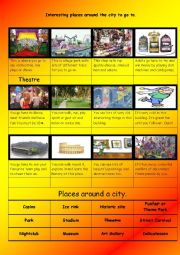
|
Places of interest in your city to visit
Students to read the description and match it to where you would go to see / do this. Part 2 of 2
Level: elementary
Age: 7-100
Type: worksheet
Downloads: 353
|
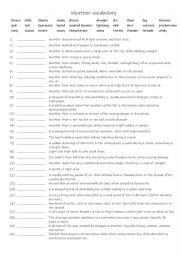
|
A2-B1 30 weather words
Students familiarise themselves with the 30 weather related words and their meanings. Then they read the definitions and write the word being described in the space provided. Answers on page 2.
Level: elementary
Age: 8-100
Type:
Downloads: 120
|
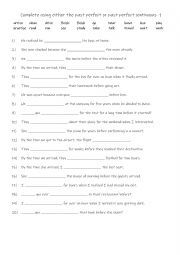
|
Complete using either the past perfect or past perfect continuous 1
First, students need to familiarise themselves with the 2 tenses and their use. Then they read the sentences to see which tense is needed to complete the sentence. Each tense is used 10 times! Answers on page 2.
Level: intermediate
Age: 9-100
Type:
Downloads: 119
|
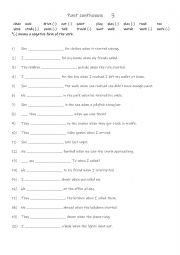
|
Past continuous 3
Learning the past continuous tense is important because it helps students describe actions that were in progress at a specific time in the past. It adds context and detail to storytelling, allowing for clearer descriptions of ongoing past events or interrupted actions. Mastering the past continuous improves fluency and accuracy in both speaking and...
Level: elementary
Age: 7-100
Type:
Downloads: 115
|
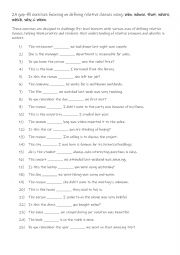
|
Defining relative clauses
25 gap-fill exercises focusing on defining relative clauses using: who, whose, that, where, which, why & when.
These exercises are designed to challenge B1 level learners with various uses of defining relative clauses, helping them practice and reinforce their understanding of relative pronouns and adverbs in context.Answers on page 2.
Level: intermediate
Age: 10-100
Type: worksheet
Downloads: 110
|
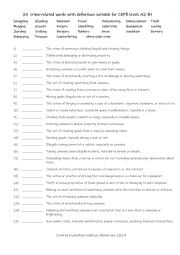
|
Match the crime words to their definitions
25 crime-related words with definitions suitable for CEFR levels A2-B1
Level: intermediate
Age: 12-100
Type: worksheet
Downloads: 109
|
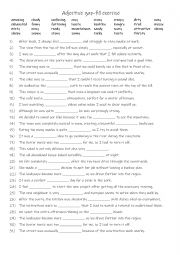
|
A2+-B1 Adjective gap-fill exercise
Students familiarise themselves with the 31 adjectives and their meanings. Then they read the sentences to see which adjective is required to complete the gap-fill.Answers on page 2.
Level: intermediate
Age: 9-100
Type:
Downloads: 104
|
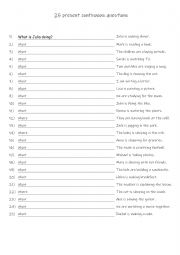
|
A1 25 Present continuous questions
Students read the answers, then they write a suitable question to get that answer. An example is given for number 1. Answers on page 2.
Level: elementary
Age: 8-100
Type:
Downloads: 101
|
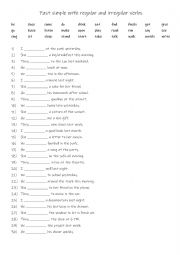
|
A1 Past simple regular & irregular verbs
Students read the sentences and use one of the given infinitives in bold to complete the gap-fill. Answers on page 2
Level: elementary
Age: 8-100
Type:
Downloads: 111
|
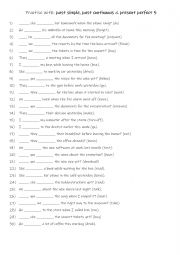
|
A1+ A2 Practise with past simple, past continuous & present perfect 5
First, students need to familiarise themselves with the 3 tenses and their use. Then they read the sentences to work out which one is needed to complete the gap-fill using the given verb in (). Each tense is used 9 times! Answers on page 2
Level: elementary
Age: 7-100
Type:
Downloads: 138
|












